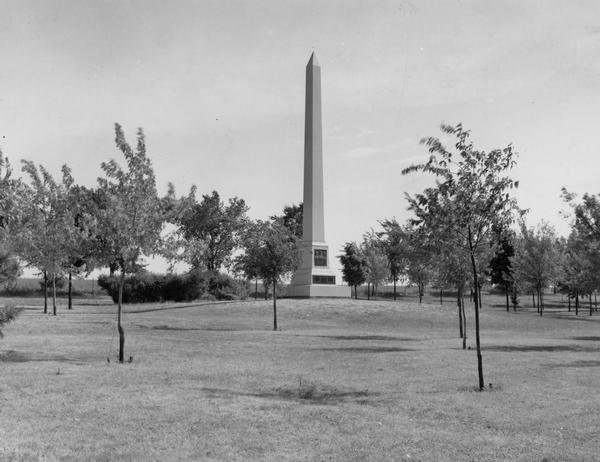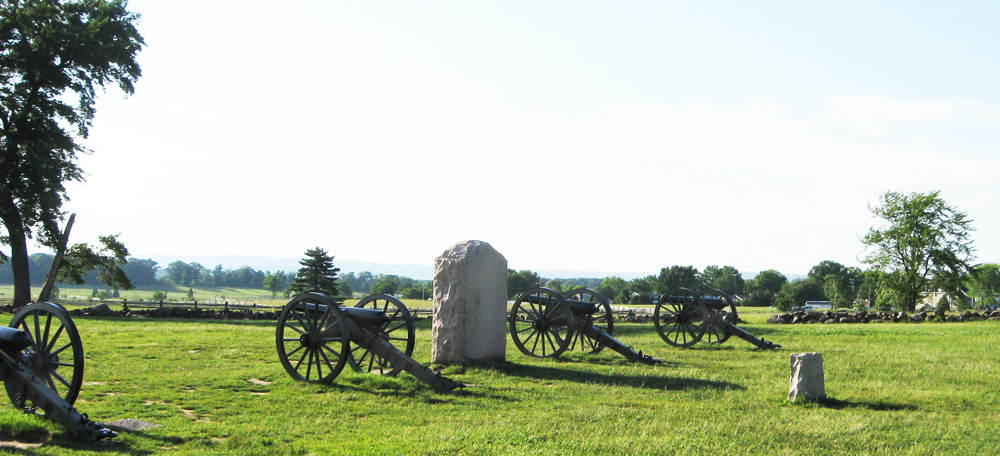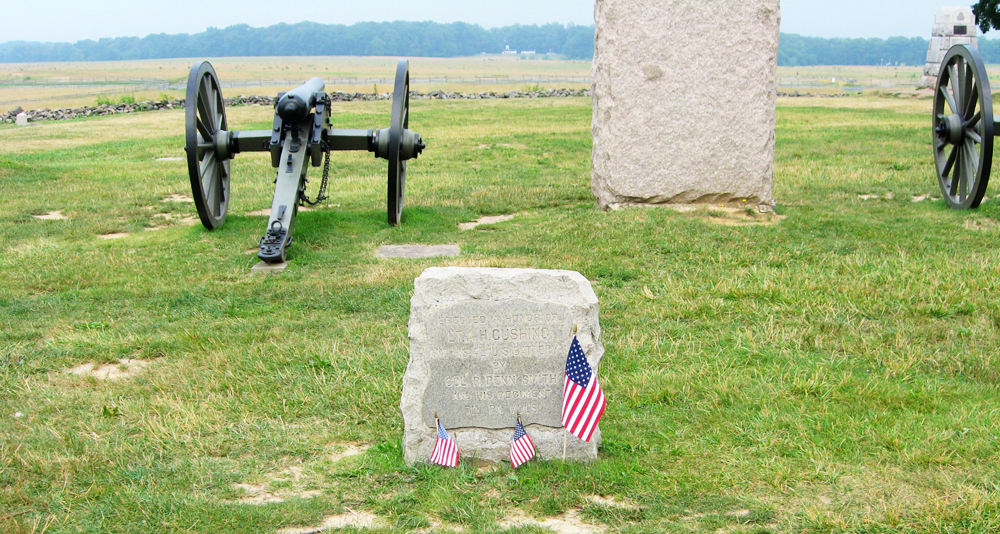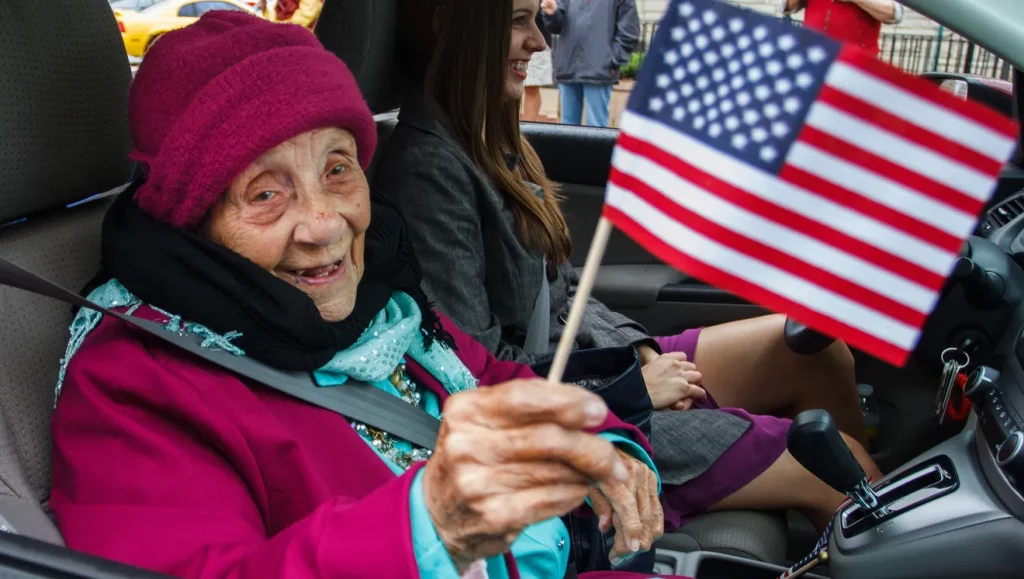Margaret Zerwekh was a hero in her own way passed away in May of 2018 at age 98. Above she is pictured in the 2015 Memorial Day parade in Delafield on the way to the Cushing Memorial Park for the 100th Anniversary Celebration and rededication of the Cushing Monument.

It all started in the 1980’s with a letter to then U S Senator Bill Proxmire. Margaret Zerwekh who was well known in Delafield and around the Lake Country area participated in the 2015 Memorial Day Parade. Margaret was leading the way for over 30 years to have Lt. Alonzo Cushing (a Delafield native) awarded the Medal of Honor for his heroic actions at the Battle of Gettysburg.

Since Proxmire eventually retired from the Senate, other members of Wisconsin’s congressional delegation have picked up Cushing’s cause. The provision approved in last week’s defense bill was authored by Reps. Ron Kind and Jim Sensenbrenner with support from Wisconsin’s senators, Ron Johnson and Tammy Baldwin.
“It’s never too late to do the right thing, especially when it comes to honoring our war heroes,” Kind said.
Added Sensenbrenner: “Lieutenant Cushing was a courageous leader who gave his life to protect our country and deserves to be recognized for his bravery.”

Among the many men who died in the nation’s bloodiest battle was Cushing, a first lieutenant in charge of an artillery battery of six cannons and 110 men.

On July 3, 1863, the third and final day of the Battle of Gettysburg, Cushing and his soldiers in Battery A, 4th U.S. Artillery, were stationed near a small grove of trees in a spot known as “the Angle” because of a nearby stone fence.
The Angle bore the brunt of the tragic and misguided gamble known as Pickett’s Charge. Before Confederate soldiers were sent to their deaths in the charge, Confederate artillery launched a ferocious bombardment that decimated Cushing’s unit. When it stopped, Cushing had only two working cannons and a few soldiers still standing.
In the cannonade, a shell fragment pierced Cushing’s shoulder and shrapnel tore through his abdomen and groin. Holding his intestines with one hand, Cushing refused to leave his cannons and his men.
Battery A moved the two remaining guns to a stone wall and blasted away at the charging Confederates. A few seconds after he yelled “I will give them one more shot,” Cushing was struck in the mouth by a bullet that killed him instantly.
He was 22.
Cushing’s body was returned to his family in Delafield, and they buried him at West Point beneath a tombstone inscribed “Faithful until death.”
Now Zerwekh believes it’s finally time to recognize Cushing for his heroism.
“Who thought it would take this long? I certainly didn’t,” said Zerwekh, who was active in the auxiliary of Sons of the Union Veterans of the Civil War. “It was something that had to be done. He was a hero. Why shouldn’t he be recognized as a hero?
Zerwekh became known by members of the U.S. Congress and even then-President Barack Obama for her work in posthumously awarding Army First Lt. Alonzo Cushing the Medal of Honor for his service in the Union Army during the Civil War.
Obama praised Zerwekh for her efforts during the ceremony awarding Cushing in the Roosevelt Room of the White House on Nov. 6, 2014.
We Salute Margaret Zerwekh for her persistence and commitment to acknowledge another hero for their sacrifice to our country by leading the way for Lt. Alonzo Cushing to be honored even though it took over 160 years.

Special Thanks to Kent Stultz of Nashotah for his contribution of this story.








